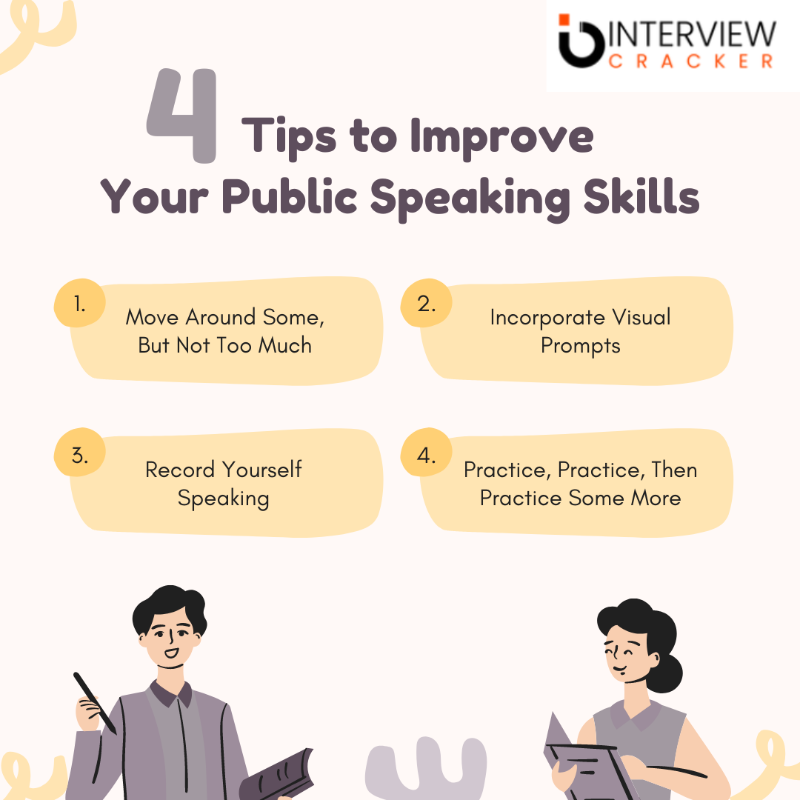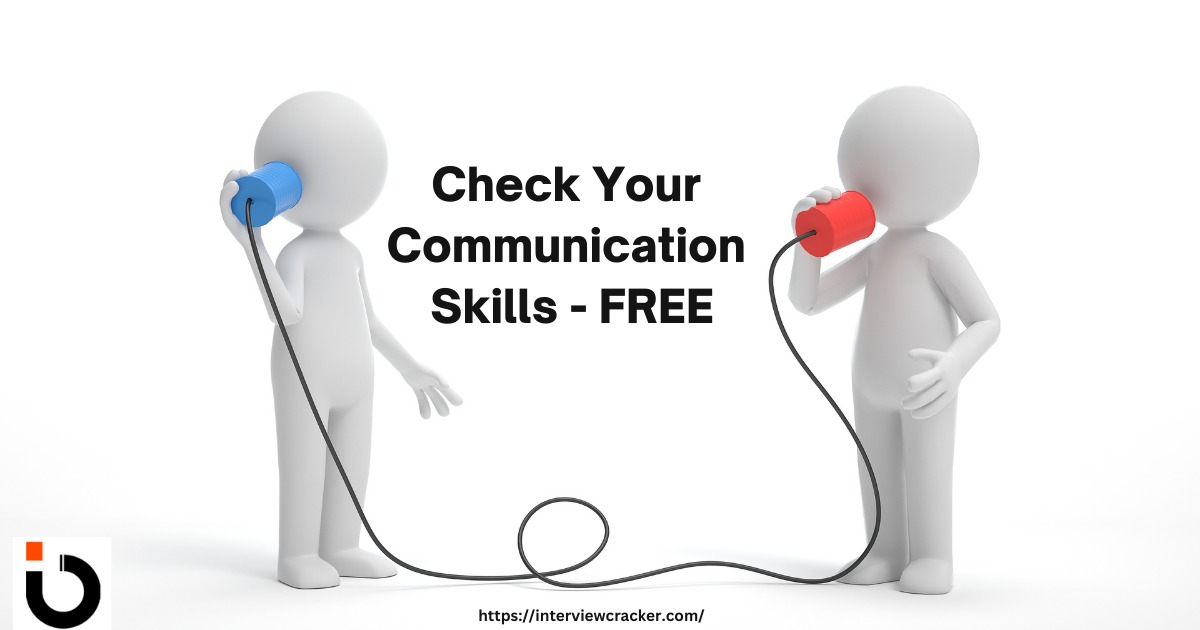What is the Importance of communication skills for students?
Answers to this question can be given in just one quote by Warren Buffett.
If you improve your communication skills, I guarantee you that you will earn fifty percent more money over your lifetime.
Warren Buffett
Why are Communication Skills Important
What is communication?
According to Skillsoyouneed, communication, at its simplest, is the act of transferring information from one place to another. It may be vocally (using voice), written (using printed or digital media such as books, magazines, websites, or emails), visually (using logos, maps, charts, or graphs), or non-verbally (using body language, gestures, and the tone and pitch of voice). In practice, it is often a combination of several of these.
Check your Communication Skills Free!
What do good communication skills include?
Communication skills include style and content, and you need them to speak appropriately to a wide range of people, keep good eye contact, display a diverse vocabulary, tailor your language to your audience, write clearly and concisely, present your ideas appropriately, listen effectively, discussing problems, and doing your job effectively – all of these are part of good communication skills.
Some examples of skilful communication are writing, speaking, listening, communicating, and interacting, as well as the ability to cultivate good human relationships.
It takes a lifetime to master effective communication skills. But you can learn a few tips to to start with.
According to a survey on Linkedin, Communication is the most sought-after soft skill among employers.

How Many Types of Communications Are There?
Here are four common types of communication:
- Verbal Communication: This is the most common form of communication, where information is exchanged through spoken words. It includes face-to-face conversations, phone calls, video calls, and any interaction where people communicate using their voices.
- Non-Verbal Communication: Non-verbal communication refers to the exchange of information without the use of words. This can include body language, facial expressions, gestures, posture, eye contact, and even tone of voice. Non-verbal cues often convey emotions, attitudes, and additional meaning alongside verbal communication.
- Written Communication: This type of communication involves the use of written language to convey messages or information. It includes emails, letters, memos, reports, articles, and any form of written text exchanged between individuals or groups.
- Visual Communication: Visual communication utilizes visual elements such as images, charts, graphs, videos, and presentations to convey information and ideas. It is an effective way to communicate complex data and concepts, making it easier for the audience to understand and retain information.
These four types of communication often complement each other, and a successful communication strategy usually involves a mix of these methods depending on the context and audience.
What is Verbal Communication: Examples & Types?
Verbal communication is the process of conveying information, thoughts, ideas, and emotions through spoken words. It can happen with face-to-face communication, informal communication, Meetings, Phone call, Interviews, business meetings.
It is one of the most common and essential forms of communication in our daily lives and plays a significant role in our interactions with others. Here are some examples and types of verbal communication:
- Face-to-Face Conversations: One of the most straightforward forms of verbal communication is when two or more individuals engage in direct, in-person conversation. This can happen in both formal and informal settings and involves speaking and listening in real time.
- Phone Calls: Verbal communication can also occur over the phone, where individuals exchange information using spoken words.
- Meetings and Presentations: In business settings, verbal communication is frequently used during meetings, presentations, and discussions. This includes team meetings, client presentations, and conferences.
- Public Speaking: When an individual addresses a larger audience, such as during a lecture, seminar, or speech, it falls under the category of public speaking.
- Video Conferencing: With the advancement of technology, verbal communication has extended to include video conferencing, where participants can see and hear each other in real time.
- Interviews: Verbal communication is a crucial aspect of job interviews, media interviews, and research interviews, as it allows for the exchange of information between the interviewer and interviewee.
Types of Verbal Communication:
- Formal Communication: This type of communication follows a structured and predetermined set of rules, often found in professional environments. Examples include official announcements, reports, and speeches.
- Informal Communication: Informal verbal communication is more relaxed and spontaneous, often occurring in social settings or casual conversations among friends and family.
- Non-native Communication: When individuals communicate using a language that is not their first language, it is referred to as non-native communication. This can happen in multicultural or international settings.
- Written Communication: Though written communication involves written words, it also often overlaps with verbal communication when it comes to reading written texts out loud, such as reading a script or a prepared speech.
- One-on-One Communication: Verbal communication can take place between two individuals, allowing for personal interactions and direct feedback.
- Group Communication: When more than two people are involved in the communication process, such as in meetings or team discussions, it becomes group communication.
- Interpersonal Communication: This type of communication occurs between individuals and involves the exchange of thoughts, emotions, and information.
Effective verbal communication is essential for building relationships, expressing ideas clearly, resolving conflicts, and fostering understanding among people. However, it's important to note that successful communication also requires active listening, empathy, and the ability to interpret and respond appropriately to verbal cues and body language.
Top 10 Importance of Communication Skills for Job.

Good Communication skills help
- Your resume to get selected
- To get selected by the interviewer
- You to be in demand by business
- In promotion/ leadership role
- In speaking clearly and concisely with the customers
- To express your thoughts
- To communicate better with your teacher
- To better communicate with friends
- To better communicate with parents
- To Reduce conflict
1. Your Resume to Get Selected
A well-written resume is itself a demonstration of strong communication skills. A resume with grammar or spelling mistakes has secured 100% rejection on the first go. Mentioning communication skills as one of your strongest skills always adds value. But do this only when your communication skill is really good. Create your resume with our AI resume builder.
2. To Get Selected By the Interviewer
You should be able to establish eye contact while talking with the interviewer. It is a mark of interest and respect. Looking away during a conversation is an indication of disinterest and shows a lack of confidence. Communication skills for interviews are often an important aspect of any position, many HR managers rate them as an indicator of how well you will interact with your team. They are often evaluated by your HR manager as a measure of your communication skills, your understanding of the team, and how you will interact with them. For this reason, communication skills are one of the most demanded soft skills employers seek from their employees.

3. You to Be in Demand by Business
Communication is one of the most essential soft skills in the business world. There are many tips for Effective Workplace Communication, you should practice daily. Good communication skills are a valuable asset that makes individuals in demand by businesses. Whether it's dealing with clients, collaborating with colleagues, or leading a team, effective communication is crucial for success in the professional world. When employees possess good communication skills, they can articulate ideas clearly, persuasively present proposals, and engage with clients in a compelling manner, making them excellent representatives for the business. Moreover, strong communicators foster a positive work environment by promoting transparency, resolving conflicts efficiently, and encouraging open dialogue, which leads to better team dynamics and higher productivity. Their ability to listen actively and understand colleagues and clients allows them to build strong relationships and anticipate the needs of others. Consequently, businesses seek individuals with exceptional communication skills as they can effectively convey the brand's message, build meaningful connections, and contribute significantly to the company's growth and success.
4. In Promotion/ Leadership role
The workplace is the most commonplace for miscommunication, and it could have severe repercussions on your career. Therefore, as a professional, you need to have excellent communication skills. It improves the way you communicate with your fellow team members. As a professional, you should be aware of the different methods of communication.
5. In Speaking Clearly and Concisely With the Customers
The customerthink.com says, While effective communication skills must be ingrained in all employees of an organization, sales and customer support representatives who deal directly with customers face a bigger challenge than their counterparts that deal with customers online or via telephone. The lack of key service skills can risk putting the business in embarrassing situations or worse yet, the business could end up losing customers due to poor customer service.
6. To Express Your Thoughts
In the absence of open communication, misunderstandings and misinterpretations are bound to happen. If you decide to stay silent instead of spitting out, frustration will come out as a quarrel. You cannot expect the person to just read your mind while you keep things to yourself. You need to learn to express your thoughts.
7. To Communicate Better With Your Teacher
ASM says that one of the biggest reasons why many students suffer is poor communication skills. It affects their functioning in colleges and also affects their ability to understand what the teacher is teaching. Your grades will improve as these skills help with studying and revision.
8. To Better Communicate with Friends
It will help you build relationships with your fellow students and friends. Good communication skills are essential for better communication with friends as they enable us to express ourselves effectively and understand our friends' thoughts and feelings. When we possess strong communication skills, we can engage in active listening, giving our friends the attention they deserve and making them feel valued. It helps us to share our joys, concerns, and experiences with clarity, allowing our friends to empathize and connect with us on a deeper level. Nurturing good communication skills fosters trust, enhances friendships, and creates a more meaningful and fulfilling connection with our friends.
9. To Better Communicate with Parents
Learning effective communication skills can greatly improve communication in relationships and reduce the level of conflict in general. Good communication skills improve personal relationships by helping you to understand and be understood by others. It will help you to convince your parents to let you study for the career you want.
10. To Reduce conflict
Effective communication skills play a crucial role in reducing conflicts and promoting better understanding and cooperation among individuals or groups. Communication skills that prioritize active listening, empathy, respect, clarity, and open-mindedness can significantly contribute to conflict reduction by fostering understanding, collaboration, and positive problem-solving. Furthermore, good communication skills help us resolve conflicts more constructively by addressing issues openly and respectfully, strengthening the bonds
There are a number of ways to improve your communication skills as they relate to your professional life.
Check your Communication Skills - Free
Benefits of effective communication
Shirley Taylor beautifully explains how good communication brings SUCCESS to you.

Stronger decision-making and problem-solving
Upturn in productivity
Convincing and compelling corporate materials
Clearer, more streamlined workflow
Enhanced professional image
Sound business relationships
Successful response ensured
If you are a communicator/trainer, a must-read: 10 Critical Soft Skills For Communicators by Forbes
Effective communication skills help you to absorb information and communicate your ideas to other people in a clear, concise, and meaningful way. Good oral and written communication skills are essential to provide and understand information quickly and accurately. Therefore, it is very important that your communication skills are effective, and by improving your communication skills you can improve the quality of your relationships with your family, friends, colleagues, employees, employers, and other people.
Another critical communication skill you can learn is the ability to speak and communicate directly, whether you are speaking in front of a group of people or in an open space with other people. A good ability to listen is also a highly valued and rare communication skill found in the business world, where more people are interested in sharing their opinions and listening to others’ needs.
How to Improve Communication Skills? | How to Develop Effective Communication Skills?
Improving communication skills is essential for personal and professional growth. Effective communication can help you express your ideas clearly, build strong relationships, and avoid misunderstandings. Here are some ways of improving communication skills:
- Active listening: Pay attention to the speaker, maintain eye contact, and avoid interrupting. Show that you are engaged by nodding and using verbal cues like "I see" or "That makes sense."
- Practice empathy: Put yourself in the other person's shoes to understand their perspective and feelings. This helps build rapport and fosters a more open and understanding communication style.
- Be clear and concise: Express your thoughts in a straightforward manner. Avoid jargon and unnecessary details, especially when dealing with complex topics.
- Use appropriate body language: Your non-verbal cues, such as gestures and facial expressions, can significantly impact the message you convey. Maintain an open and approachable posture.
- Know your audience: Adapt your communication style to suit the needs and preferences of your listeners. Tailor your language and tone accordingly.
- Ask questions: Seek clarification when needed and encourage others to share their thoughts. Asking questions demonstrates interest and helps to build a deeper understanding of the topic.
- Use positive language: Be mindful of the words you choose. Use constructive and positive language to foster a more supportive and encouraging atmosphere.
- Develop storytelling skills: Narratives can be powerful tools for conveying information and making your message memorable.
- Practice public speaking: Join public speaking clubs or practice in front of a mirror to build confidence and improve articulation.
- Avoid assumptions: Clarify information before jumping to conclusions. Avoid making assumptions about what others mean or feel.
- Receive feedback graciously: Accept feedback with an open mind and use it to identify areas for improvement.
- Read and write regularly: Engage in reading and writing exercises to enhance your vocabulary and improve your ability to express ideas effectively.
- Be patient: If you are discussing a sensitive or difficult topic, be patient with yourself and others. Allow space for everyone to process and respond thoughtfully.
- Work on conflict resolution skills: Learn how to handle disagreements and conflicts with empathy and tact.
- Practice assertiveness: Express your needs and opinions in a respectful and confident manner.
Remember, improving communication skills is an ongoing process, and it takes time and practice. Be patient with yourself and stay committed to continuous improvement.
10 Communication Skills Examples for Your Resume
1. Excellent verbal communication
2. Active Listening
3. Non verbal communication
4. Written communication
5. Public Speaking
6. Empathy
7. Interpersonal skills
8. Conflict resolution
9. Accepting Feedback
10. Excellent Presentation Skills
Don't just add these points in your resume but show a few of them in your resume( like written skills). Providing concrete examples of how you've applied these communication skills in previous roles can further strengthen your resume.
Remember to tailor these bullet points to your specific experiences and achievements to make your resume stand out to potential employers.
5 Communication Skills Book Everyone Should Read
Here are five highly regarded books on communication skills that can help you improve your abilities in various aspects of communication:
- "How to Win Friends and Influence People" by Dale Carnegie - A classic self-help book that offers timeless advice on building strong interpersonal relationships, improving communication, and winning people over to your way of thinking.
- "Crucial Conversations: Tools for Talking When Stakes Are High" by Kerry Patterson, Joseph Grenny, Ron McMillan, and Al Switzler - This book provides valuable insights and techniques for handling difficult conversations, managing emotions, and achieving positive outcomes in high-stakes situations.
- "Nonviolent Communication: A Language of Life" by Marshall B. Rosenberg - This book introduces the concept of Nonviolent Communication (NVC), emphasizing empathy and compassion to resolve conflicts, improve understanding, and enhance connections with others.
- "Talk Like TED: The 9 Public-Speaking Secrets of the World's Top Minds" by Carmine Gallo - Drawing from the best TED Talks, this book reveals valuable techniques for captivating public speaking, storytelling, and delivering compelling presentations.
- "Difficult Conversations: How to Discuss What Matters Most" by Douglas Stone, Bruce Patton, and Sheila Heen - Addressing the challenges of handling tough conversations, this book provides practical strategies for resolving conflicts and finding common ground in various situations.
These books offer a range of communication skills and techniques, from everyday interactions to public speaking and conflict resolution. Each book provides valuable insights and actionable advice to help you enhance your communication abilities in both personal and professional settings. Happy reading and learning!
Tips to Improve Public Speaking Skills

- Move around but not much
- Incorporate visual prompts
- Record Yourself Speaking - Practice with AI at Interview Cracker's Interview preparation platform. Its unique speech AI will analyze your voice and will give you feedback.
- Practice, Practice , Practice
In conclusion, the significance of communication skills cannot be overstated in our personal and professional lives. Effective communication serves as the cornerstone of building strong relationships, fostering collaboration, and achieving success in various endeavors. Moreover, it enhances our capacity to understand and empathize with others, leading to more harmonious interactions and constructive conflict resolution. So, let us embark on this transformative path, where effective communication becomes the bridge that unites us and propels us toward a brighter and more successful future.








 Made with Superblog
Made with Superblog